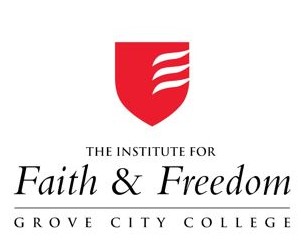Les Miz: Mizleading on History of Change

Revolutionary fervor in seizing the barricades for change makes for great theater and grand cinema, but seldom produces the positive results that young idealists desire. Those constructive consequences come much more reliably from middle-aged, middle-class virtues, patience, planning, deferred gratification, hard work, incremental improvement—with far less flash and glory.
That’s the problem at the very heart of the magnificent new movie version of Les Miserables, an obvious front-runner for nominations in every major category in this year’s Oscar race. In faithfully adapting the hit stage show, which in turn followed the classic outlines of the revered Victor Hugo novel of 1862, the movie hands audiences an inescapably disturbing and ultimately dishonest conclusion. It’s unsettling rather than uplifting—not at all what the heroic filmmakers (led by director Tom Hooper, who previously did brilliant work on The King’s Speech) intended.
The final segment of the sprawling story focuses on a bloody incident of French history: the failed “June Rebellion” of 1832. Following the wrenching disruption and slaughter of the original French Revolution (beginning in 1789), the constant warfare of the Napoleonic era, the emperor’s exile and brief return (1815), re-institution of the monarchy, and another violent uprising in 1830 that installed the “Citizen King” Louis-Phillipe, the short-lived revolt dramatized in the novel and movie would be largely forgotten were it not for Les Miserables. The failure of the student-led uprising, culminating in nearly 200 deaths in two days of street battles, produced only more repression, and then more grisly turmoil, until another Revolution in 1848 gave way to another Emperor (Napoleon III). That imperial episode collapsed after disastrous defeat in a major war with Prussia (1870), and the brutal failure of the world’s first Communist revolution (1871), yet another forlorn and violent attempt to bring on a glorious new day.
No one can expect a movie or a stage show to portray or even hint at the turbulent, dysfunctional, corpse-ridden course of French history throughout the 19th century. But as grand entertainment with a passionately personal focus, the movie version of Les Miserables almost entirely ignores historical context while glorifying the revolutionary inclination, regardless of results. A reprise of the stirring song “When Tomorrow Comes” concludes the epic journey of the story’s long-suffering characters with unbridled utopian visions:
“The chain will be broken and all men will have their reward!
Will you join in our crusade?
Who will be strong and stand with me?
Somewhere beyond the barricade
Is there a world you long to see?
Do you hear the distant drums?
There is a life about to start
When tomorrow comes!”
Astonishing visual splendor accompanies these rousing lyrics, with tens of thousands of impassioned revolutionaries (provided through the magic of computer graphics imagery) joining back-from-the-dead characters on screen, waving red flags on huge barricades vastly more formidable than those portrayed in the film’s extended sequence showing the doomed, minor rising of 1832.
The implication? That the youthful and handsome true believers may have failed to win a brave new world in the episode dramatized on screen but their revolutionary cause ultimately succeeded when future generations rallied to the call of “distant drums” and rushed to other barricades to make sure that “the chain will be broken and all men will have their reward.”
This glorious deliverance never occurred, of course: the violent revolutions that wracked Europe and Asia in the spirit of Les Miserables only served to make humanity more miserable, not to produce some glorious worker’s paradise. Does anyone still believe that the Russian or Chinese revolutions, with their tens of millions of slaughtered civilians, actually succeeded in bringing about “a world you long to see?”
Sure, Russia and China today offer vastly more benign and productive societies than the corrupt feudal days of the czarist or imperial past, but that’s because they followed the inspiration of the American revolution, not the French version. The founders of this country–nearly all of them merchants, planters or commerce-oriented lawyers–extolled the power of business and the profit motive, and the benefits of disparate centers of individual enterprise, rather than grand utopian and collectivist visions leading armed youth to the barricades. George Washington never made himself an emperor or a dictator, and the new nation never followed his eight-year presidency with an era of revolutionary violence and instability. Two hundred and fifteen years after the Father of His Country left his presidential perch we may wince at the dysfunctional politics at the edge of the fiscal cliff, but we should still feel thankful that we’ve always avoided the chaotic and devastatingly destructive discontinuity that has characterized all nations with a more radical revolutionary past.
American audiences may thrill to the big-hearted and redemptive storytelling of the movie version of Les Miserables, but their reaction will stem in part from the confidence that the “tomorrow” promised in the movie’s conclusion has already arrived for most of humanity. Following the incomparably influential American model, France and the other developed nations of the planet have mostly eliminated the brutal squalor and oppression dramatized so vividly in Victor Hugo’s 19th century masterpiece and its latest adaptation. That transformation occurred through the virtues exemplified by the novel’s central figure, Jean Valjean, the reformed ex-convict who remakes himself as a businessman, factory owner, and mayor of a small city. In the best traditions associated with modern conservatism—pursuing profit, productivity, middle class respectability, local community service, and even religious redemption—Valjean offers the right prescription for shaping a kinder, gentler society. Since that failed rebellion of 1832, building businesses changed the world for the better, not angry mobs mounting the barricades. Tomorrow did come, but it was through Les Biz rather than through Les Miz.




















